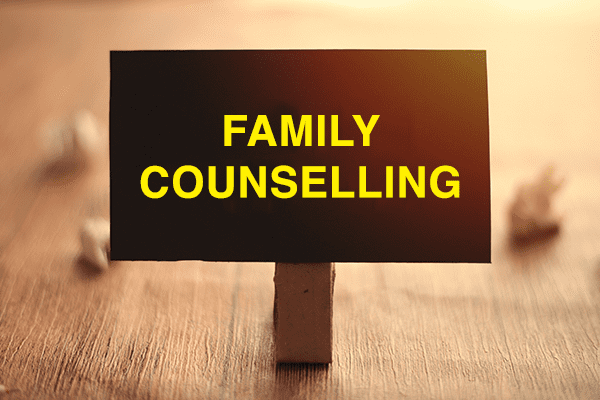Contact Us




Family counselling, as the name indicates, is a type of group psychotherapy for people who love and care for each other and often stay together. This may include, parents and kids, grandparents, uncles and aunts, partners, cousins, brothers and sisters, caregivers and any other members who are considered to be a part of the family.
Family therapy is designed to make the lives of those involved easier and more fulfilling. It helps everyone in the family understand each other so they may support each other unconditionally. Family counselling is helpful when the family is facing issues like mental or physical illness, unemployment, separation, divorce, adoption, moving to new cities, substance abuse, trauma, death and other such situations that can trigger negative emotions. In the Indian context, where many families harbour intergenerational relationships, discord among the members can often be seen owing to different perspectives or even with the onset of difficult old-age illnesses like dementia etc. Caregivers who are primarily responsible for the well-being of the elderly may face difficulties with the changes in behaviour and reduced cognitive abilities of the elders. In these situations, it is not uncommon for family members to become angry, agitated, tired and frustrated. With the timely intervention of family counselling, it is possible to address these issues and resolve them at the earliest for a happier and healthier relationship.
Family counselling involves talking about issues at hand and addressing problems in the family by tackling difficult conversations within a safe space. In the presence of a trained therapist, it focuses on improving communication between family members. The counsellor may choose to have individual sessions with the members or even as a group. For some, it may take a few sessions and for others, it may take longer. The counsellor may also give family exercises to help improve inter-family relationships. When the elderly in the family are afflicted with mental health illnesses that hamper their day-to-day lives or cause changes in behaviour, it may upset or confuse the other family members. It is important to get the disease diagnosed in time when you spot the initial symptoms. As family members lack the awareness of how to help the elderly, their behaviour may remain the same or worsen over time. In these situations, family therapy can help the family members understand the illness and help improve the elderly’s condition while maintaining their own mental well-being.
Family therapy helps:
As most families are not properly equipped or aware of mental illnesses like dementia, it’s best to opt for experts’ opinions. Samvedna Care offers family counselling for families dealing with elders’ dementia. After recognizing the symptoms and opting for family counselling, it is important to set family counselling goals like normalizing complicated feelings, redirecting negative thoughts into positive affirmations, improving communications between family members, processing grief and changes, establishing family roles and responsibilities and more. With elder care family counselling, it is now possible to harbour a harmonious relationship between the elderly afflicted with dementia and other caregivers and members of the family.